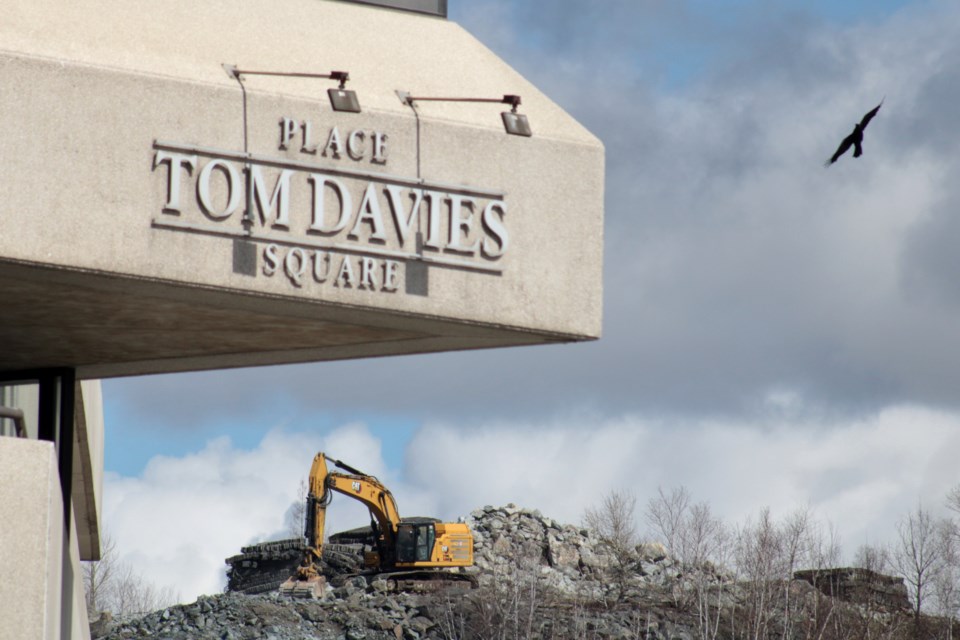City of Greater Sudbury development charges are less than half the provincial average for every property class, and are in some cases much lower than that.
Among 121 Ontario municipalities, the average development charge for a single-family detached dwelling is $50,918. In Greater Sudbury, it’s $22,162.
The average development charge per multi-residential unit is $39,732, whereas Greater Sudbury charges $12,791.
Development charges per square foot of commercial builds is $23.85 provincially ($5.56 in Greater Sudbury), while the average for industrial builds is $14.03 ($3.70 in Greater Sudbury).
With city council in the midst of preparing a new development charges bylaw, Hemson Consulting associate partner Stefan Krzeczunowicz walked the city’s elected officials through the current situation during this week’s finance and administration committee meeting.
“Growth should pay for itself so it’s not existing taxpayers subsidizing these expenditures; it’s the growth through the development charge paying for it,” he explained of development charges, which are levied against developers of new builds.
The city’s current development charges bylaw expires on June 30, prior to which city council is expected to adopt a replacement. Public feedback is ongoing at overtoyou.greatersudbury.ca, and a report on its findings will be tabled for city council consideration on May 22.
Although it’ll be up to city council to determine what development charges, if any, they should continue charging, the background study prepared by Hemson Consulting establishes Greater Sudbury as charging much less than they could.
This is due to past decisions of city council, including most notably a 2019 decision to slash non-residential (commercial/institutional and industrial) development charges by 50 per cent and last year’s choice to freeze development charges across the board rather than have them jump by a scheduled 9.9 per cent.
These decisions to push development-related expenses onto the general tax base rather than developers via development charges were explained by city council members in both cases as a means of spurring development and broadening the tax base.
Last year’s decision to freeze development charges was expected to shift approximately $590,000 per year from developers onto the general tax base, since the same work has to take place regardless of whether a development charge is levied.
The 2019 decision to halve development charges for non-residential developments was projected to shift approximately $709,233 per year from development charges onto the general tax base.
However, Krzeczunowicz cautioned that it might not be effective at accomplishing this goal.
“As a general rule, there is very little empirical evidence to show that a reduction in development charges has a direct bearing on the amount of development that will occur in a municipality,” he said, adding that this is particularly true for residential, commercial and institutional builds.
As for industrial developments which he said have high up-front costs, development charges may influence decisions, but he reiterated, “As a general rule there is very little tangible link between the two.”
A similar such conversation arose in 2019, around the time non-residential rates were halved, at which time city CAO Ed Archer clarified that development charges comprise only a few percentage points of developments’ total cost, and that “other market forces influence decisions about how much to grow the market more than a (development charges) policy does.”
Included in Hemson Consulting’s report are the development charges the city would need to adopt to recover all municipal expenses associated with new developments over a period of 10 years. They are as follows:
- Single-detached residential per unit: $29,505 (the current rate is $22,162)
- Semi-detached residential per unit: $24,880 ($17,806 currently)
- Apartments, multiples and small residential per unit: $17,581 ($12,791 currently)
- Commercial/institutional: $16.97 per square foot ($5.56 currently)
- Industrial: $13.48 per square foot ($3.70 currently)
The costs associated with new developments are drawn from various areas of impact. For example, the $29,505 cost ascribed to a single-detached residential unit consists of:
- $1,124 - Library services
- $90 - Fire services
- $590 - Police services
- $2,346 - Parks and recreation
- $275 - Ambulance service
- $195 - Emergency preparedness
- $404 - Transit
- $8,135 - Roads and related
- $4,637 - Water services
- $10,947 - Wastewater services
- $762 - Drains
In the event Greater Sudbury were to adopt the full development charge rates estimated to cover all costs associated with new developments, every property class would still be charged a lower rate than provincial averages, and most of the charges levied by a list of five similarly sized municipalities.
These municipalities include Guelph (population 155,578), Barrie (164,575), Kingston (180,070), Windsor (227,657) and St. Catherines (144,829). Greater Sudbury’s population is 166,004.
Among these comparators, the only development charge rate Greater Sudbury would exceed are the industrial rates for Kingston ($11.90 per square foot), Windsor ($0) and St. Catherines ($8.82). Greater Sudbury’s current rate is $3.70 and the proposed full rate would be $13.48.
Between 2019 and 2023, Greater Sudbury collected $17.6 million in development charges and offered discounts of $5.2 million through various incentive programs. This includes exempting affordable housing from development charges.
City council is expected to approve a new development charges bylaw during their June 11 meeting, which would become effective July 1.
Prior to that, Ward 4 Coun. Paulin Fortin told Sudbury.com she plans on tabling a motion asking for a three-year moratorium on smaller multi-unit residential buildings, which she’d have more to say about as soon as her motion has been drafted.
Fortin introduced last year’s motion to freeze development charges, which passed by a vote of 7-5.
Tyler Clarke covers city hall and political affairs for Sudbury.com.
